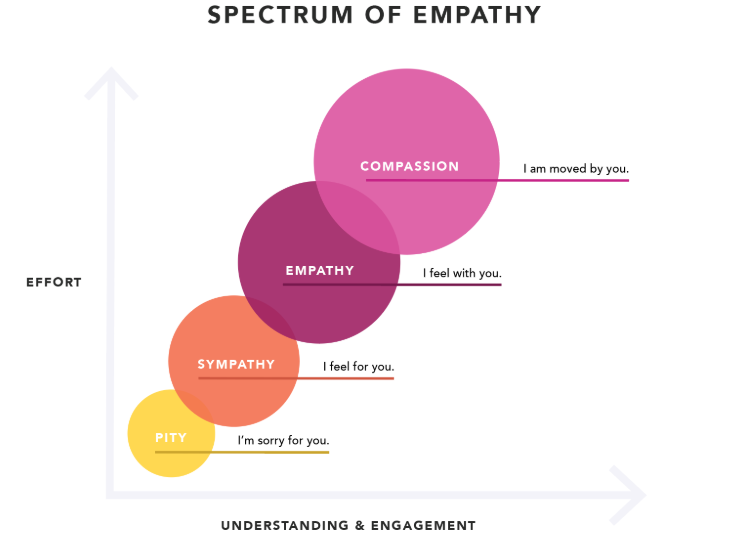Empathy in Customer Service is Your Secret to Success
We’ve all called a business’s customer service line with an issue before. Maybe a product was not working as expected and you were hoping to get a refund. Or maybe a company’s website was down when you needed to use it.
No matter what your situation was, the organization’s response to your issue may have made all the difference. A caring reply and a promise to improve in the future can alleviate a lot of frustration. But an irritated response with no sign of compassion can make the situation 10x worse.
This is why empathy in customer service is critical. In fact, a recent study showed that 96% of consumers view empathy as important in customer support interactions. Can you afford to disappoint 96% of your customers?
Read on to uncover why empathy is so essential and how to incorporate it into your customer service strategy.
The Impact of Empathy on Customer Experience
Brands that prioritize the customer experience can expect improved brand loyalty, increased sales, and more referrals. One way to gain these benefits is by practicing empathy in all customer conversations.
However, many businesses are struggling to get this right. Recent research revealed that 64% of US consumers feel that companies have lost touch with the human element of the customer experience.
When consumers do not feel connected to or valued by a brand, the customer experience as a whole suffers. And this has a direct negative impact on customer retention. Just think about the last time you called a business with a problem. If the service representative on the line didn’t even apologize for the inconvenience, you’d probably think twice before making another purchase.
At Radius, our contact center services are driven by empathy. We ensure positive customer experiences by practicing active listening and building connections.

Real-Life Empathy Examples for Better Customer Service
Not sure how to incorporate empathy into your customer service strategy? It helps to know a few key empathy statements. That way, when customers call with an issue, you’ll have some reliable replies prepared.
If an unhappy customer contacts your organization, there are several empathetic ways you can respond:
- “Thank you for bringing this to my attention.”
- “I’m so sorry you had to deal with this.”
- “I recently had this issue as well, and I know how frustrating it can be.”
- “That sounds really challenging.”
- “I can only imagine what you’re going through.”
- “It makes me sad to hear that this happened.”
- “You’re absolutely right.”
- “We really appreciate your honest feedback.”
- “Thank you so much for your patience. We’ll get back to you as soon as possible.”
All of these statements can be repeated throughout the conversation when appropriate. They help your customers feel understood and that their time is valued. Sometimes customers don’t necessarily expect the problem itself to be solved. They just want to talk through what happened and feel heard by your brand.
If an interaction happens over the phone, don’t forget that your tone of voice is everything. Saying any of the aforementioned statements with a bored, irritated, or disingenuous tone will only make the situation worse.
Building a Culture of Empathy Within Your Team
Empathy should be part of your customer service team’s culture. Customer support is all about building connections with people and helping them solve their problems. Approaching each interaction with empathy and compassion is crucial for your success.
The pandemic has only accentuated consumers’ need to feel heard. When people are facing difficult times, speaking to someone who genuinely cares can make a huge difference. If a consumer feels brushed off when they’re trying to make a connection with your brand, they will have no problem looking elsewhere.
Showing empathy not only benefits your customers but your business as a whole. Encouraging empathetic customer service will help your team better understand customer pain points, navigate conflicts, and build stronger relationships.
The Role of Technology in Enhancing Empathetic Customer Service
You may have heard that artificial intelligence (AI) and machine learning are changing how businesses interact with their customers. Tools like sentiment analysis software are increasingly being employed to gauge the emotional tone behind customer inquiries and feedback. This technology can automatically detect nuances in customer sentiment, whether frustration, satisfaction, or indifference, allowing service agents to tailor their responses more effectively.
Additionally, AI-powered chatbots are designed to handle initial interactions, using machine learning algorithms to adapt responses dynamically based on the customer’s mood and history. These intelligent systems ensure that customer service is responsive and aligned with customer emotions, allowing for more meaningful and satisfying interactions.
Outsource Empathy with Customer Service Experts
The best way to standardize empathetic customer support is to trust the experts. At Radius Global Solutions, our team is extensively trained to approach all customer engagements with care. We’re fluent in empathy statements and know how to handle difficult conversations.
Contact us today to learn how outsourcing your customer service team can drive success.




